Chinese local governments are declaring a 'state of war' to fight the pandemic. Is this necessary?
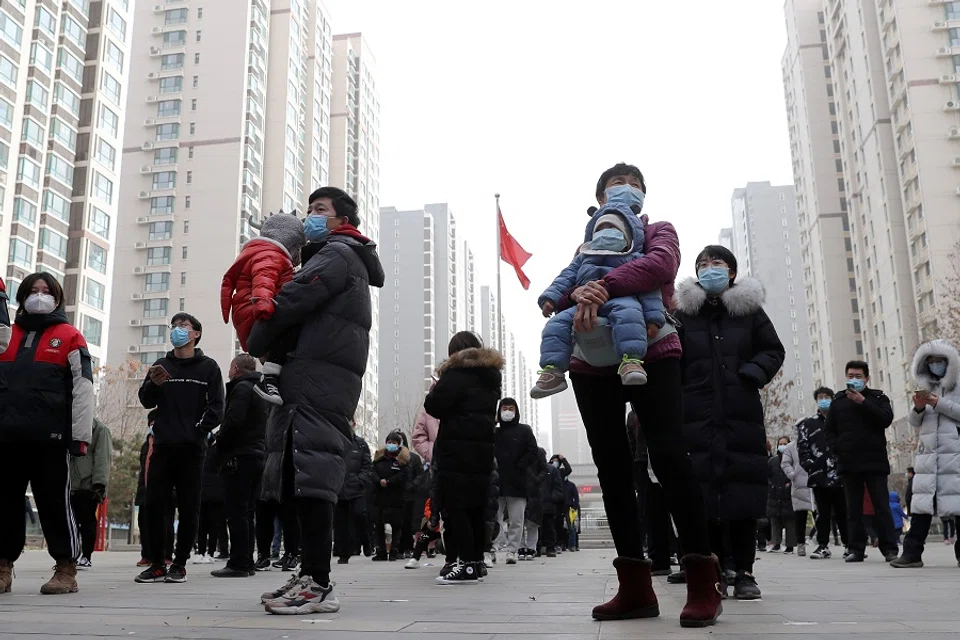
Following a resurgence of Covid-19 cases in China in January 2021, certain Chinese regions have ramped up their containment measures, severely affecting people's lives and restricting their mobility.
On 17 January, the pandemic control and prevention headquarters of Heilongjiang province's Zhaodong city announced that with effect from 5pm that day, anyone transiting through Zhaodong by train would have to proceed to the stadium to take a nucleic acid test, and leave Zhaodong immediately when they tested negative. Furthermore, no entry was allowed into the city at land-based checkpoints and anyone who entered by other means would be quarantined at their own expense.
At the same time, Zhaodong residents would only be allowed to head out to buy daily necessities once every three days based on a travel pass, while villagers would be banned from leaving their houses and visiting their neighbours. The latter would only be able to head out once every three days within their village to buy daily necessities. Apart from pharmacies, provision shops, vegetable stores, grain and oil stores, supermarkets, agricultural markets, and other stores that sold daily necessities, all other businesses would temporarily be suspended. There would also be no dining in at hotels.
All personnel needing to leave their residences for work purposes must eat and stay at their working units and not return home.
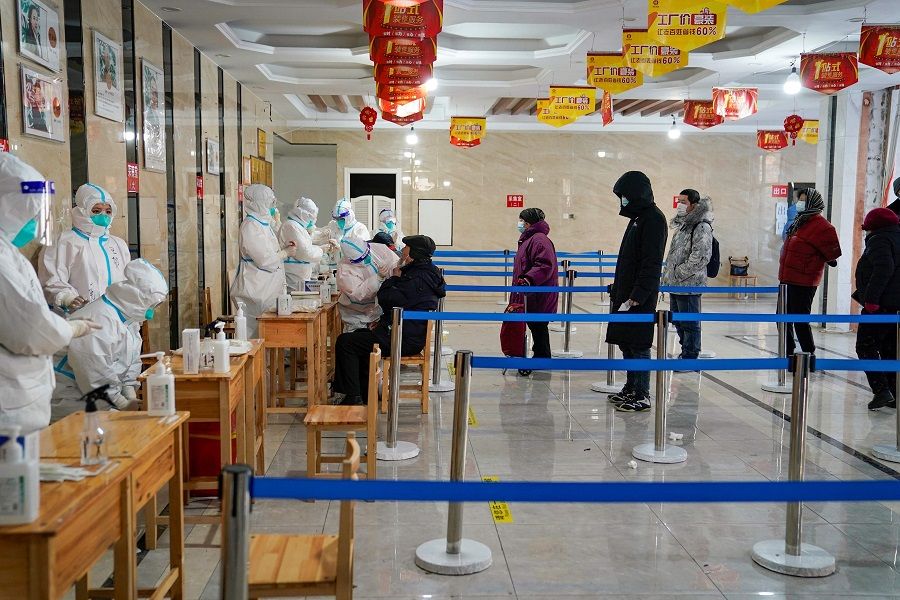
Over at Heilongjiang province's Zhaozhou county in Daqing city, anyone entering Zhaozhou - even those coming from low-risk regions or regions with no Covid-19 cases - would have to undergo a 21-day centralised quarantine and a seven-day home quarantine at their own expense.
On 16 January, Hebei province's Nangong city announced the "strictest set of containment measures" yet: residents from different community districts, residential areas, family compounds, and villages would not be allowed to mingle and instead be subjected to a lockdown and home quarantine. All personnel needing to leave their residences for work purposes must eat and stay at their working units and not return home. Detention measures would be imposed on those who violated these regulations or refused to follow instructions. Individuals with serious offences would be held criminally responsible.
It seems like governments can only demonstrate that they are paying close attention to handling the pandemic by "declaring war" in the first instance.
Being seen to be war-ready
Over the past few days, similarly stringent containment measures have been imposed in various Chinese regions. Apart from Hebei, which reported a rapid resurgence of Covid-19 cases, local governments of various regions with less severe rates of resurgence such as Liaoning's Shenyang, Sichuan's Chengdu, Anhui's Hefei, and Shanxi's Jinzhong have also declared "wartime conditions". It seems like governments can only demonstrate that they are paying close attention to handling the pandemic by "declaring war" in the first instance.
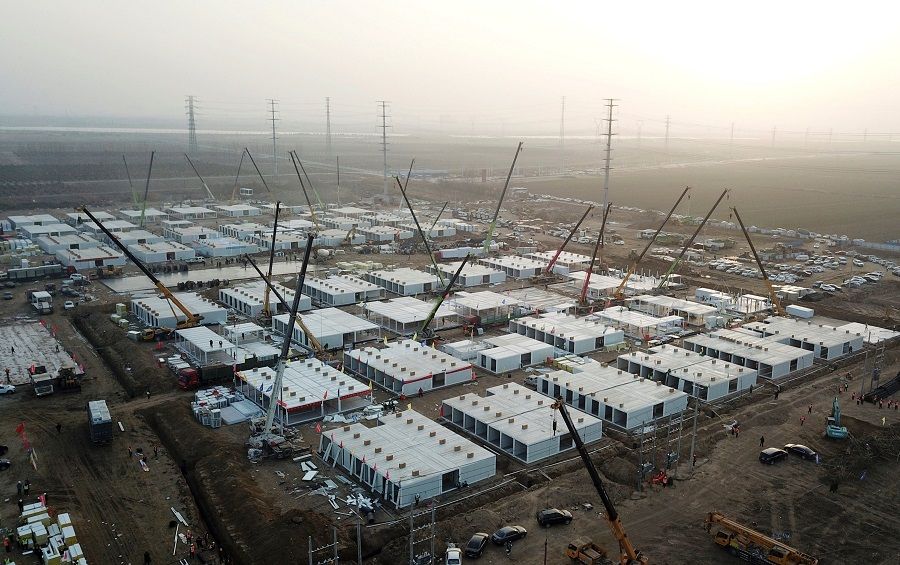
Strict measures in "wartime conditions" proved to be very effective when the pandemic was wreaking havoc in Wuhan early last year. Back then, the Covid-19 pandemic was intense in Wuhan and Hubei, and tens of thousands of people were infected. Moreover, people knew little about the coronavirus then, and it was reasonable that authorities declared "wartime conditions" at that time.
Compared to the pandemic situation in Wuhan back then, Zhaodong city and Zhaozhou county are not the epicentres of the current resurgence in Covid-19 cases. While the authorities may seem to have resolutely taken action as soon as they could with the series of strict containment measures imposed, these measures have in fact dealt a big blow to local production and businesses as well as people's daily lives. These officials are suspected to be doing things for the sake of doing them, and of putting up a show and abusing their power.
Impairing local livelihoods?
Of course, the local officials would disagree. They probably think that taking strict pre-emptive measures against the pandemic shows their determination to fight any outbreak, so that if an outbreak really occurs, it would be easier for them to answer to their superiors. The inconvenience these measures would cause and the number of people whose jobs would be affected are not as important as showing the responsibility of "being prepared".
Some people also feel that when it comes to control measures, the stricter the better. For example, the 21 days of quarantine in facilities and seven days of home quarantine apply even for those from low-risk areas, which is inconvenient for some people but serves the good of the majority.
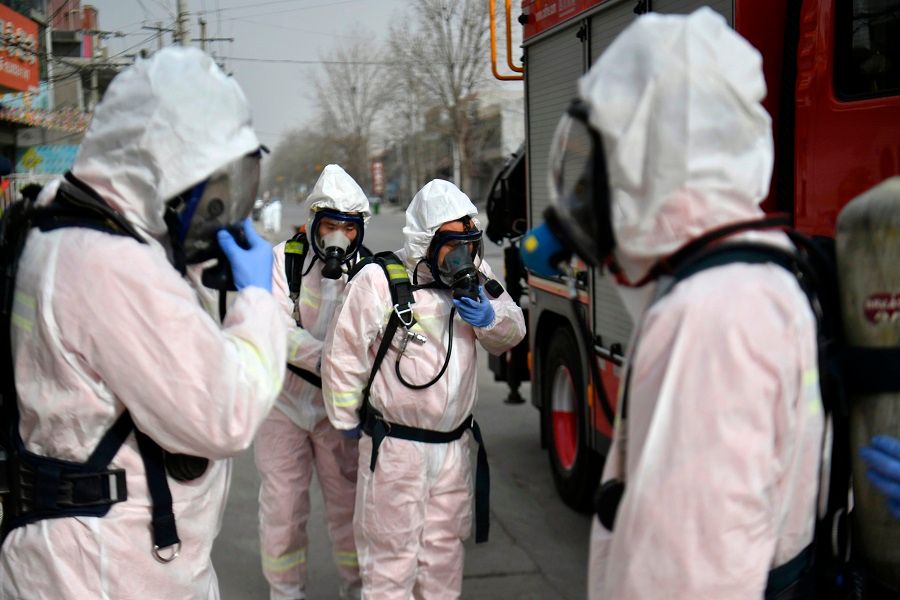
However, this is easier said than done. As the Spring Festival - or Chinese New Year - approaches, human flow is high as working people return to their home counties and cities, and the 21 days of quarantine in facilities would already deplete a whole year's worth of their vacation leave, to say nothing of having to fork out a substantial amount of their own hard-earned money to pay for this quarantine. Such an "inconvenience" is a burden and pain for anyone, not to mention that so many people would feel it.
This is the self-serving and dominant side of authority - it looks like being responsible, but is in fact lazy governance to shirk responsibility...
Little basis to declare 'state of war'
Besides, some local governments simply apply "wartime" pandemic measures regardless of the actual situation, which seems more like an unthinking, arbitrary policy decision. To policymakers, since it is "wartime", naturally they would not be held to legal restrictions and do not have to worry about public opinion. This is the self-serving and dominant side of authority - it looks like being responsible, but is in fact lazy governance to shirk responsibility, while the public whose daily life and movements are severely affected become the sacrifices of such self-serving authority and lazy governance.
China's mainstream media has also criticised local governments' misuse of a "wartime" situation. Xinhua Daily Telegraph ran a commentary that some places adopt a "wartime" rhetoric to show that they are actively fighting the pandemic. However, determination and nimbleness is not about slogans but actual action. There are obvious gaps abound at railway stations and airports in places that have been declared to be in a "state of war", and many have commented that there seems to be little difference between "wartime" and "peacetime".
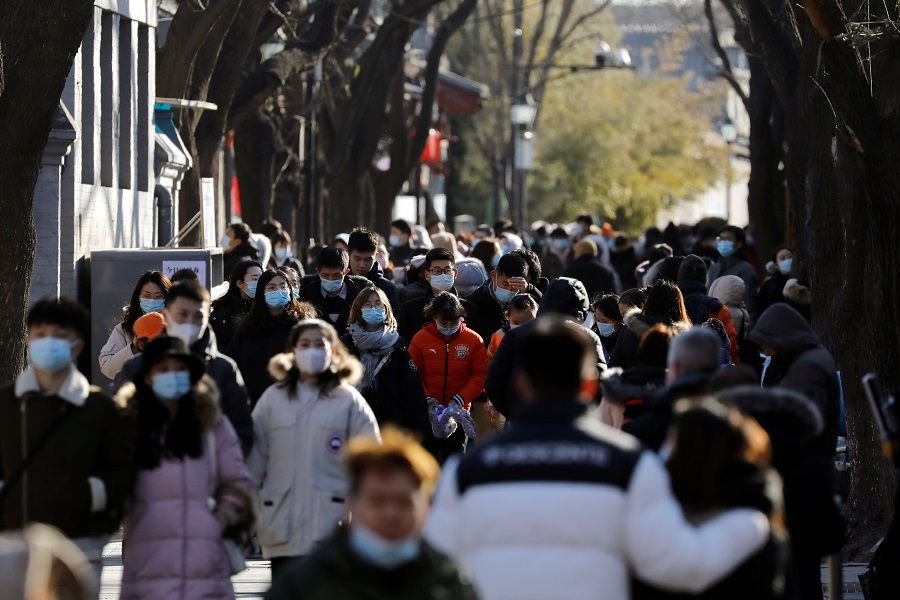
According to China's laws, officials can declare a state of war or state of emergency, but the decision lies with the National People's Congress and its standing committee, as well as China's State Council, after which the president makes the announcement.
Based on this, there is in fact no legal basis for some local governments to declare a "state of war" and ramp up pandemic measures, reflecting poor awareness of the rule of law, and local officials having too much power and a lack of supervision, which would lead people to question their ability to govern according to the law. Unbridled authority is not only detrimental to pandemic efforts, but would also damage the government's image.
